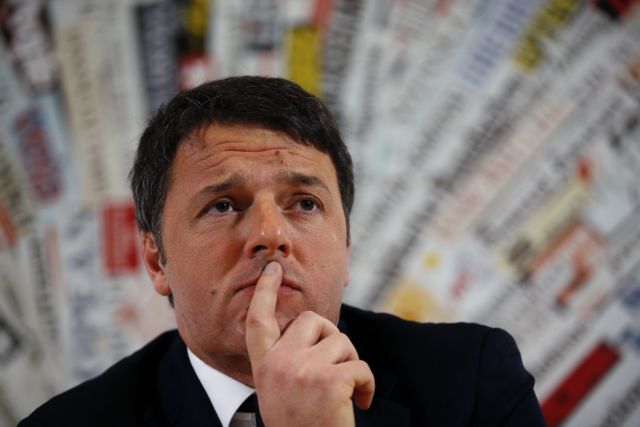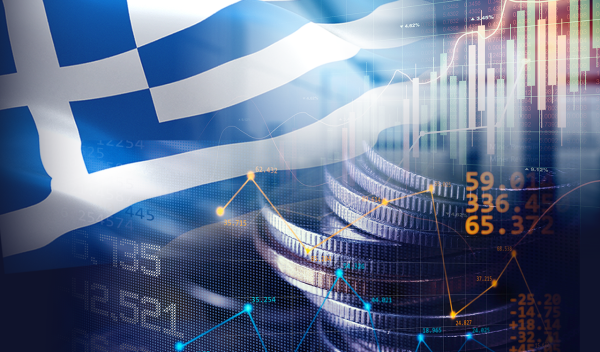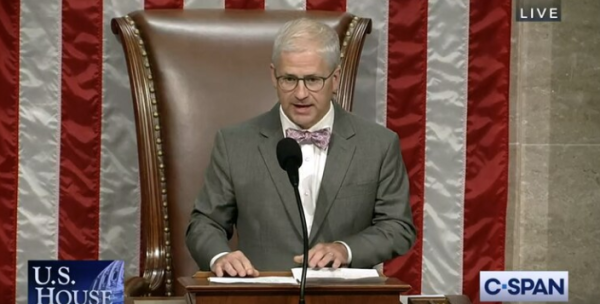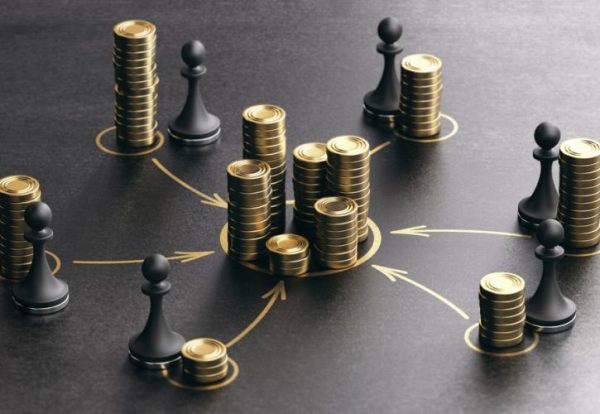
“Good evening, I’m Mateo”: it is unusual for a former prime minister to introduce himself to you with his given name. But 46-year-old Matteo Renzi (in addition to the well-known Mediterranean relaxed demeanor) has this comfort of a person who managed to reach the top very young. Mayor of Florence between 2009 and 2014, leader of the Democratic Party (PD) between 2013 and 2018, Prime Minister of Italy from 2014-2016, is now the leader, since 2019, of a small party, Viva Italia, but still honors his old nickname “Rottamatore”, the “Roller”: he pulled the rug under the feet of the Conte 2 government in January, he paved the way for Mario Draghi to take over the Italian presidency, head of a government in which all parties participated except for the neo-fascist Brothers of Italy.
We met him in Athens, in the lobby of the InterContinental Athenaeum Hotel, when he had come to attend the Economist conference on demographic challenges and gender equality policies, but he had one eye on his homeland, and as soon as the results of the second round of Italian municipal elections were announced he said he was a happy Matteo Renzi. “Very happy”, and “for the victory of the reformers in practically every city”, and “for the death, in my opinion, of the Five Star Movement”, and “for the defeat of the populists and nationalists of the Far Right”. “The only major victories of the right-wing alliance came from Berlusconi’s Forza Italia,” he said, “its most European party. Salvini and Meloni fought each other and both lost. Very good news “. Of course, he is careful not to draw national conclusions, he points out that only 45% voted, and in the national elections, which are normally expected in 2023, the turnout will rise to 70%, “but we will see. “Today is good!” He also feels a little justified: “Ten months ago, I was told, ‘By torpedoing the Conte government, you are preparing a tragedy for the reformers!’ And the opposite happened. “We are starting to destroy the populists.”
“As an Italian, Mario Draghi saved the euro. “As a European, he will save Italy,” you said in February, when Draghi accepted a mandate to form a government. How do you think “Super Mario” is doing so far?
When we tried to replace Conte with Draghi, many criticized me. Now, the message I sent in February is reality. Mario saved Italy with a great vaccination campaign – 85% of Italians are fully vaccinated – with a good recovery plan – as you know, that was where my disagreements with Conte focused – and I also believe that Mario saved Italy with an approach that is not technocratic, because he is not a technocrat, do not listen to those who say he is a good technocrat, he is a good politician. We will see later. He can remain prime minister for many years, become a good president of the Republic, or even a good leader of a European institution.
Now that Angela Merkel’s crown as Europe’s leader is free, who do you say will take the reins of the continent, Draghi, Soltz or Macron?
The answer is easy, all together of course. I hope Emanuel wins again, that is my hope, and I think the best for France. But we can not discount what will happen in six months… Especially in France! No way. In October 2016, Hollande was certain that he would be a candidate again, and on the Right, everyone thought that Sarkozy’s time had come again. Macron surprised everyone. I hope that a big surprise awaits us accordingly.
Are you thinking of Eric Zemour?
We do not know what might happen because the real risk, I honestly say, is for both Marin Le Pen and Eric Zemour to run, and for a second round not Macron vs. Le Pen or Macron vs. Zemour, but maybe Macron vs. Barnier, or Macron vs. Bertrand. This is good for the institutions, but I will be clear, for Macron, in terms of chances, it is better to duel with a Far Right winger than with a Republican. But we can not make predictions now. I think Soltz will be a good chancellor, and of course Germany is the leader of Europe, but Soltz will not be Merkel, especially in the first months. With Macron in the campaign, then, and Soltz at hise beginning, I believe that the real leader is Draghi, but Draghi’s leadership is a gentle, inclusive one. So: we need them all together, Macron, Draghi, Soltz, but I believe that right now, for many reasons, it is Mario’s time.
Where do you place Greece in this context?
I fought for Greece six years ago, because I believe that the demands of the Netherlands, as well as Germany, were a tragedy, and a foolish approach. Every time we talked about Greece’s high debt, I was reminded of Europe’s high debt to Greece. So I am glad that I worked with Tsipras and Hollande to keep Greece in the euro. The situation is different now, Greece has a good leadership, it is able to play a positive role in the financial debate. Mitsotakis has a very good relationship with many colleagues, including Draghi. And I believe that Greece will, of course, stand on the right side when in 2022 we have to discuss the future of the stability pact. Because Covid-19 blocked it, but some countries believe that we must return to this old pact – not of stability, but of stupidity. Greece therefore has a critical role to play in finance, geopolitics and defense, and in the emergence of tomorrow’s Europe as a place of culture and values.
Tens of thousands of people demonstrated in Rome against fascism last Saturday, a week after far-right extremists stormed the headquarters of the country’s oldest labor union. Do you share the concern of many in Europe that the Far Right is rising again, “surfing” the anti-vaccination movement and the fear of a new wave of migration due to Afghanistan?
I think it is important to react decisively, but at the same time I am not afraid. Because I do not believe that there is a danger of neo-fascism in Italy or Europe. There is of course a very strong feeling of extreme, very extreme Right, and that is frightening. But as the Spanish writer Javier Thercas has nicely explained, the real danger at this time is not fascism, it is populism.
Far-right populism, far-left populism or both?
Both. There is no single definition, we see between the vaccinators and the extreme right and the extreme left, because it is not the ideology that motivates them, but the love for populism. And I think that is the big problem for democracy. Today, populism cancels time. There is no time for voting. Voting ceases to be cast at the ballot box, in elections, it is the like on Instagram.
Latest News

Airbnb: Greece’s Short-Term Rentals Dip in March Amid Easter Shift
Data from analytics firm AirDNA shows that average occupancy for short-term rentals dropped to 45% in March, down from 49% the same month last year.

Easter Week in Greece: Holy Friday in Orthodoxy Today
At the Vespers service on Friday evening the image of Christ is removed from the Cross and wrapped in a white cloth

Meloni and Trump Meet in Washington, Vow to Strengthen Western Ties
“I am 100% sure there will be no problems reaching a deal on tariffs with the EU—none whatsoever,” Trump stressed.

ECB Cuts Interest Rates by 25 Basis Points in Expected Move
The ECB’s Governing Council opted to lower the deposit facility rate—the benchmark for signaling monetary policy direction—citing an updated assessment of inflation prospects, the dynamics of underlying inflation, and the strength of monetary policy transmission.

Current Account Deficit Fell by €573.2ml Feb. 2025: BoG
The improvement of Greece’s current account was mainly attributed to a more robust balance of goods and, to a lesser extent, an improved primary income account

Hellenic Food Authority Issues Food Safety Tips for Easter
Food safety tips on how to make sure your lamb has been properly inspected and your eggs stay fresh.

Greek Kiwifruit Exports Smash 200,000-Ton Mark, Setting New Record
According to data by the Association of Greek Fruit, Vegetable and Juice Exporters, Incofruit Hellas, between September 1, 2024, and April 17, 2025, kiwifruit exports increased by 14.2%.

Easter Tourism Boom: Greece Sees 18.3% Surge in Hotel Bookings
Among foreign markets, Israel has emerged as the biggest growth driver, with hotel bookings more than doubling—up 178.5% year-on-year.

Greece to Launch Fast-Track Tender for Offshore Hydrocarbon Exploration
Last week, Papastavrou signed the acceptance of interest for the two Cretan blocks, while similar decisions regarding the two Ionian Sea blocks were signed by his predecessor

American-Hellenic Chamber of Commerce to Open Washington D.C. Branch
AmCham's new office aims aims to deepen U.S.-Greece economic ties and promote investment and innovation between the two countries







![Πλημμύρες: Σημειώθηκαν σε επίπεδα ρεκόρ στην Ευρώπη το 2024 [γράφημα]](https://www.ot.gr/wp-content/uploads/2025/04/FLOOD_HUNGRY-90x90.jpg)




![Airbnb: Πτωτικά κινήθηκε η ζήτηση τον Μάρτιο – Τι δείχνουν τα στοιχεία [γράφημα]](https://www.ot.gr/wp-content/uploads/2024/07/airbnb-gba8e58468_1280-1-90x90.jpg)

























![Airbnb: Πτωτικά κινήθηκε η ζήτηση τον Μάρτιο – Τι δείχνουν τα στοιχεία [γράφημα]](https://www.ot.gr/wp-content/uploads/2024/07/airbnb-gba8e58468_1280-1-600x500.jpg)


 Αριθμός Πιστοποίησης
Αριθμός Πιστοποίησης